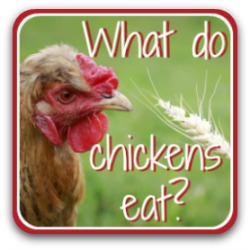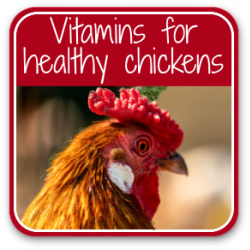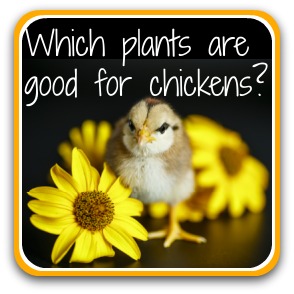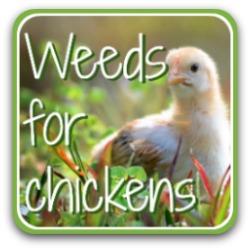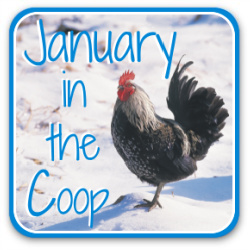Can chickens eat vegetables? Here are the best and worst for your flock.
We know that humans should eat more veg. But what about our chickens?
Can they eat vegetables and, if so, which are best for them?
The short answer is yes. Most vegetables are safe and healthy for chickens, and many can boost egg quality and strengthen their immune systems.
But, just as with people, moderation matters. A chicken's main diet should still come from a balanced feed, with vegetables as nutritious extras, not replacements.
Over the years, I've found that some vegetables are real flock favourites (and full of proven health benefits), while others can do more harm than good. This guide draws on more than a decade of hands-on experience with my own flock, and on verified scientific studies into how different vegetables affect poultry health.
So here’s a clear guide to which vegetables your chickens can eat, which to avoid, and how to prepare them safely.
🪶 Featherlight Takeaways.
Quick insights from this article – especially helpful if you're trying to add healthy variety to your flock's diet and wondering which vegetables are safe.
- Feed in moderation: vegetables are treats. Keep them to around 10% of your chickens' total diet.
- Grain first, greens after: always let your flock fill up on their regular feed before offering veg.
- Go for variety: try one or two new vegetables at a time and see what your chickens like best.
- Avoid the harmful few: some common vegetables can be toxic. We'll look at those, too.
Can chickens eat broccoli?
Yes, and it's one of the most nutritious vegetables you can offer your flock.
Broccoli is naturally fat-free and rich in vitamins and minerals that support strong shells, bright feathers, and healthy immune systems.
Broccoli contains...
- Vitamin C: a powerful antioxidant that boosts the immune system.
- Vitamin B-complex: promotes healthy bones and plumage.
- Calcium: essential for strong eggshells; helps prevent egg peritonitis.
Did you know? Broccoli's effect on eggs.
Research shows that feeding broccoli to laying hens can improve the nutritional quality of their eggs(2, 3):
- Higher levels of xanthophyll, which gives yolks a deeper orange colour.
- Lower levels of "bad" cholesterol in the yolk.
So broccoli benefits both your hens and you!
How to feed broccoli to chickens.
- Florets: adult hens can peck at raw florets easily. For chicks, chop into tiny pieces.
- Stems and leaves: also edible and especially high in antioxidants(2, 3, 4). Many hens find them tough raw, so lightly steam instead of boiling to soften while preserving nutrients.
- Fermented broccoli: Studies show fermented broccoli reduces Salmonella, E. coli, and Campylobacter, while boosting antioxidants and immune strength. Learn more about fermenting chicken feed.

Can chickens eat cabbage?
Yes. Both green and red cabbage are safe and healthy for chickens.
Despite what some websites claim, scientific studies have shown that cabbage is not toxic to poultry(e.g. 6). It’s a low-fat, nutrient-rich vegetable that supports bone strength, egg quality, and fertility.
Cabbage contains...
- Vitamin K: improves the hatchability of fertile eggs, supports blood health and is especially important for older chickens.
- Calcium: strengthens bones and egg shells.
- Phosphorous: helps the body absorb calcium and Vitamin A effectively.
How to feed cabbage to chickens.
- Offer cabbage in moderation: around one small handful of leaves per hen, or one whole head for a medium-sized flock, once a week.
- Fresh and lightly steamed are both ideal.
- For enrichment, try hanging a whole head in the run so they can peck at it throughout the day. It gives hours of fun and gentle exercise!
- Alternatively, just scatter the leaves on the ground and let your flock choose their favourite bits.
🐥 A note from my flock: this is Miss Molly, one of my frizzles, enjoying a fresh cabbage snack. It's a great winter boredom-buster!

Can chickens eat carrots?
Yes, chickens can eat carrots – although not all flocks are enthusiastic about them!
Studies(e.g. 7) show that carrots offer real nutritional benefits for laying hens, particularly by improving calcium absorption, which supports stronger eggshells and bone health.
Carrots contain...
- A high level of antioxidants which help protect cells from damage.
- A high water content, useful for keeping chickens hydrated, particularly in the hot summer months.
- A low level of fat, so they won't add extra calories!
How to feed carrots to chickens.
Adult chickens can eat raw or steamed pieces. In my experience, they'll leave raw carrot but enjoy lightly steamed.
Mix small bits of carrot into a warm winter mash or a frozen summer treat to add colour, flavour and vitamins.
🐥 A note from my flock: for baby chicks, I don't feed carrots until they're several weeks old, and then I grate or finely chop them. They can’t manage the hard texture otherwise.
This is one of my 5 week old Orpingtons investigating somefinely grated carrot.

Can chickens eat cucumber?
Yes, they certainly can, and they’ll thank you for it on a hot summer day!
Cucumbers are one of the best warm-weather treats for chickens. They’re crisp, refreshing, and packed with water (about 96% of cucumber is water, in fact) which helps prevent heat stress(9).
Cucumber contains...
- Vitamin K: very high levels, vital for strong bones and joint flexibility, especially in older hens.
- Potassium: which supports heart function and helps chickens deal with high temperatures.
- Hydration: helps chickens stay cool in extreme temperatures.
- Low sugar and no fat: making it a healthy, light treat which won't upset the balance of their diet.
How to feed cucumbers to chickens.
- There's no need to peel cucumbers, although most chickens will peck at the softer middle and leave the skin.
- Slice or cube them rather than offering a whole cucumber, which can over-face them (and gets very messy!)
- Try spiralising cucumber into thin ribbons to make it easier for chicks or bantams to eat.
- Add chunks to a frozen treat for hot days to keep your flock both hydrated and entertained.
 Cool, crisp, and full of water: cucumbers are a summer essential for your flock.
Cool, crisp, and full of water: cucumbers are a summer essential for your flock.Can chickens eat green beans?
Yes, if they are cooked.
Raw beans of any kind are toxic to chickens, even after soaking. To be safe they should be thoroughly cooked.
Once cooked, green beans become a healthy, protein-rich treat packed with essential nutrients.
Green beans contain...
- Vitamin C: a powerful antioxidant that promotes healthy cells and boosts the immune system.
- Iron: which helps improve the nutritional quality of egg yolks(10).
- Beta carotene: which converts to vitamin A, supporting skin and feather health.
- Fibre: which has been shown in studies(e.g. 11) to lower cholesterol in both chickens and their eggs.
How to feed green beans.
- Steam (or boil) until soft. Never serve them raw or soaked.
- For adults, whole beans are fine. For chicks, chop into smaller pieces.
- Fresh or frozen (once cooked) are both suitable.
- Avoid canned green beans. They often contain added salt which can harm (and in excess, kill) poultry.
🐥 A note from my flock: my baby chicks love green beans. These 4 week olds are investigating a platter of steamed, chopped beans. You'll find they're cautious at first but once one tries, the rest will follow.
 Some of my 4 week old chicks tucking into their green beans.
Some of my 4 week old chicks tucking into their green beans.Can chickens eat sweetcorn?
Yes, they absolutely can, and your flock will make sure you know it!
Few treats cause as much excitement in the run as a handful of corn. It's one of those foods that chickens seem hard-wired to love.
Sweetcorn is a great natural energy boost for chickens, especially during colder months.
Sweetcorn contains...
- Vitamin C: in very high amounts – an antioxidant that helps prevent cell damage and supports the immune system.
- A natural source of carbohydrates: helping chickens maintain body warmth in winter.
- Beta carotene: which converts to Vitamin A. It is a critical nutrient for general health and bone development. It also enhances the golden colour of yolks.
How to feed sweetcorn to chickens.
- Fresh, frozen, or tinned sweetcorn are all fine. Avoid any stored in brine or with added sugar.
- There's evidence(15) that tinned sweetcorn contains more antioxidants and is therefore even better for the immune system than fresh. Be careful of this though: tinned sweetcorn often has added salt.
- Scatter sweetcorn across the run for some extra foraging activity, particularly in winter when greens are less available.
- Baby chicks can usually manage whole pieces, or they can be lightly crushed.
 Sweetcorn chaos! Even baby chicks can’t resist a golden snack.
Sweetcorn chaos! Even baby chicks can’t resist a golden snack.Can chickens eat celery?
Yes, but with some cautions. Celery is rich in nutrients and can be a useful addition to your flock’s diet, but its fibrous texture makes it tricky for chickens to digest if served whole.
Celery contains...
- Calcium and potassium: both vital for strong bones and steady egg production.
- Vitamins A, K, C, D and E: supporting feather growth and immune health.
How to feed celery to chickens.
- Avoid feeding large pieces of raw celery. Its fibrous nature can make it difficult to digest and may lead to impaction.
- Steam stalks to soften the fibres while retaining nutrients.
- Celery leaves are safe and nutritious, and chickens generally prefer them to the stalks.
Try feeding celery powder.
- The only studies of poultry and celery dealt with mountain celery powder(8), which was found to significantly lower the levels of "bad" (LDL) cholesterol, and raise those of "good" (HDL) cholesterol.
- Make sure you buy celery powder and not celery salt.
- Sprinkle it on their feed, or mix it into a treat like the Poultry Protein Platter for an extra immune system boost in the winter.
- Organic and GMO free, something like this is ideal. (This is an "affiliate link", which means that if you click and buy something, I earn a small commission at no extra cost to you)

Can chickens eat tomatoes?
Yes, but only when they're ripe.
Green or under-ripe tomatoes, and the leaves or stems of the plant, are toxic to chickens. They contain solanine, the same harmful compound found in green potatoes.
Chickens are naturally drawn to red foods, so they will often go straight for ripe tomatoes. It's one reason they're such a fun treat to offer.
Tomatoes contain...
- Vitamin A: supports healthy eyes, feathers, and immune systems, and is especially helpful during moulting or cold weather.
- Vitamin K: aids blood clotting and keeps internal organs strong.
- Lycopene: the antioxidant that gives tomatoes their red colour and helps protect against cell damage.
How to feed tomatoes to chickens.
- Only feed fully ripe tomatoes. Avoid any which are green, damaged or mouldy.
- Never feed the vines, leaves or stems.
- Scatter over-ripe tomatoes in the run, remembering to clear up any leftovers before roosting time so as not to attract vermin.
- Grow hanging tomato varieties like Tom Thumb from baskets in the run. Chickens can't get to the toxic vine, but can pick at the fallen ripe fruit.
Can chickens eat mushrooms?
Yes, but only store-bought varieties that humans can safely eat.
Wild mushrooms should be avoided unless you’re an expert forager. Some species are as toxic to poultry as they are to people.
Mushrooms contain...
- Vitamin B6: helps chickens absorb proteins and promotes healthy growth.
- Potassium: critical for strong muscle development and heart health.
- Antioxidants: which protect cells and strengthen the immune system.
"Medicinal" mushrooms and chicken health.
A few mushroom species are classed as "medicinal" and are increasingly being studied as natural immune boosters for poultry. These include:
Research shows these can be of special help to chickens because they:
- Strengthen the immune system
- Improve nutrient absorption
- Support calcium retention
- Lower E. coli and Salmonella levels
- Reduce nitrogen in droppings, which helps with smell control in the coop.
So while "ordinary" mushrooms have benefits for chickens, if you're looking for super-foods, look for these in your local supermarket:
- White button mushroom (Agaricus brasiliensis/Agaricus bisporus)
- Shiitake (Lentinula edodes)
- Oyster (Pleurotus ostreatus)
- Lion’s Mane (Hericium erinaceus)
- Enokitake (find this in Japanese stores)
Among them, Shiitake is especially noted for preventing the growth of abnormal cells and promoting overall vitality(11).

How to feed mushrooms to chickens.
- Feed a maximum of once a week, and no more than a handful per chicken.
- Ferment mushrooms with your chickens' feed for the most beneficial impact. Add up to 15% mushrooms for most benefit. Discover how to ferment chicken feed here.
- If feeding fresh, cut into small pieces. My experience is chickens aren't keen on uncooked mushrooms.
- If they ignore them, try cooking lightly without oil. Feed both the mushrooms, pour the liquid onto their feed.
Can chickens eat potatoes?
Short answer: chickens can eat some potatoes.
- Cooked white potatoes can be fed occasionally.
- Raw, green, or sprouted potatoes, and leaves or stems contain solanine, a toxic compound that can cause digestive and neurological problems in chickens (and in humans, too).
The problem with raw and green potatoes.
🥔 Solanine is a natural defence chemical that forms when potatoes are exposed to light or start to sprout.
🥔 Even small amounts can cause problems for poultry, from reduced appetite and weakness to, in high doses, serious illness or death.
🥔 So, if the potato skin looks green or has "eyes", it’s not safe for your flock.
🥔 The potato plant itself (leaves, vines, flowers) should never be fed to chickens under any circumstances.
Are cooked potatoes safe for chickens?
🥔 Yes, as long as they’re cooked without butter, salt, or milk.
🥔 Boiled or mashed potatoes are fine as an occasional warm treat, especially in cold weather when your flock can use a little extra energy.
🥔 But remember that white potatoes are mostly carbohydrate, with limited nutritional value compared to other vegetables. Too much can lead to intestinal issues or weight gain.
🥔 Think of them as comfort food, not health food.
Can chickens eat sweet potatoes?
Despite the name, sweet potatoes aren't potatoes at all. They belong to a different plant family and are completely safe for chickens, including the leaves and vines.
Sweet potatoes contain...
- Vitamin A: in high amounts. Boosts the immune system and supports egg production.
- Vitamin B6: promotes healthy growth and boosts egg quality, which in turn helps successful hatches.
How to feed sweet potatoes to chickens.
- As with all treats, moderation is key. Offer no more than a small handful once a week.
- Leave the skin on, even if boiling, to increase nutritional value.
- Bake a sweet potato, slice it in half, and serve warm to your flock. They'll enjoy every bite, skins and all!
- Use the flesh to make "sweet potato cookies". Boil or steam, mash and press into a cookie cutter. Bake at about 180ºC (350ºF, gas mark 4) for a few minutes.

What vegetables should a chicken not eat?
- Most vegetables are perfectly safe for chickens, but a few can cause problems.
- Avoid feeding onions, green or sprouted potatoes, tomato leaves or vines, and raw beans. They contain natural compounds that can make chickens ill, or worse.
- For a full list of foods that should never go in the coop take a look at my detailed guide: What chickens should not eat.
Frequently asked questions about chickens eating vegetables.
Can chickens eat raw vegetables?
Can chickens eat raw vegetables?
Yes.
Many raw vegetables are perfectly safe and nutritious for chickens, especially leafy greens, cucumbers, etc.
However, some vegetables with toxic compounds (e.g. raw beans, raw potatoes, onion family) must be avoided or cooked.
Always introduce any new veggies slowly and in moderation.
Can chickens eat onions?
Can chickens eat onions?
No.
- Onions and related plants (garlic, leeks, chives) contain thiosulphates, which can damage red blood cells and lead to haemolytic anaemia in poultry.
- This disease kills red blood cells, so the chicken cannot properly supply its organs with oxygenated blood(16).
- A chicken would need to ingest a large amount of thiosulphate to do irreparable damage. So if your flock eat some leftover onion it may cause some digestive issues but probably won't kill them.
Are green potatoes poisonous to chickens?
Are green potatoes poisonous to chickens?
Yes.
Green or sprouting potatoes contain solanine, a toxic compound that can cause digestive and neurological problems in chickens.
Cooked potatoes are safe if the green parts are removed, but raw potatoes and skins should be avoided.
How often can I give vegetables to my chickens?
How often can I give vegetables to my chickens?
Vegetables should be treats, not staples.
A good guideline is to keep all treats (including vegetables) to no more than 10% of the chicken's total diet.
Offer a few different vegetables throughout the week rather than large amounts all at once.

European Feed Regulations.
Under current European and UK regulations, chickens must not be fed any food that has passed through a kitchen, whether that kitchen is domestic or commercial.
This rule applies to all backyard flocks, no matter how large or small — even if you don’t sell eggs or meat. It includes meats, vegetables, and all kitchen scraps.
In addition, the sale of dried mealworms for feeding poultry is prohibited, although these products are still sometimes found in shops labelled "for wild birds".
These rules exist to help prevent the spread of disease and ensure feed safety, particularly where imported ingredients may not meet UK or EU quality standards.

Other articles about what chickens can eat.

Sources.
A lot of "facts" you'll find on the internet are often people's individual views, based on inaccurate information repeated from poor quality sources.
The information I provide in this article and others is based not just on my own experience, but on evidenced facts from scientific, peer-reviewed research and books from highly respected and experienced poultry keepers such as Gail Damerow.
Some of the trusted sources I have used in this article are these.
1. World Health Organization: Healthy Diet. Pub. 2020.
2. Hu, C. H., et al: Effects of broccoli stems and leaves meal on production performance and egg quality of laying hens. Pub. Journal of Animal Feed Science and Technology, 2011.
3. Pedrosa, G., et al: Broccoli meal fed to laying hens increases nutrients in eggs and deepens the yolk color. Pub. University of California, Department of Agriculture, 2018.
4. Lee, M. D.: Etiology and Epidemiology of Avian Campylobacter Infection. Pub. Virginia-Maryland College of Veterinary Medicine, 2019; updated 2022.
5. Liu, N. et al: Fermented Broccoli Residue Reduced Harmful Bacterial Loads and Improved Meat Antioxidation of Free-Range Broilers. Pub. Journal of Applied Poultry Research, 2019.
6. Mustafa, A. F.: Evaluation of dried vegetable residues for poultry: III Effects of feeding cabbage leaf residues on laying performance, egg quality, and apparent total tract digestibility. Pub. Journal of Applied Poultry Research, 2018.
7. Prasetyo, T. J., et al: Effect of Use of Waste Product of Carrot (Daucus carota. L) Meal in the Diet to Effiency Use Protein and Calcium Broiler Chicken. Pub. Journal of Animal Husbandry Science and Technology, 2019.
8. Ahmadipour, B., et al: Evaluation of hepatic lipogenesis and antioxidant status of broiler chickens fed mountain celery. Pub. BMC Veterinary Research, 2019.
9. Jaarsma, C.: 10 water-rich foods to help you stay hydrated. Pub BUPA, 2019.
10. Taschetto, D., et al: Iron requirements of broiler breeder hens. Pub. Journal of Poultry Science, 2021.
11. Abbel-Monain, M. A.: Effect of using green beans processing by-products with and without enzyme supplementation on broilers performance and blood parameters. Pub. Journal of Agrobiology, 2013.
12. Mahfuz, S, and Piao, X.: Use of Medicinal Mushrooms in Layer Ration. Pub. National Center for Biotechnology Information, 2019.
13. Murugesen, G. R.: Prevalence and effects of mycotoxins on poultry health and performance, and recent development in mycotoxin counteracting strategies. Pub. Journal of Poultry Science, 2017.
14. Fowler, J: Nutrition for the Backyard Flock. Pub. University of Georgia, 2022.
15. Dewanto et al: Processed Sweet Corn Has Higher Antioxidant Activity. Pub. Journal of Agricultural and Food Chemistry, 2002.
16. Datta, A, et al: An avian model for the study of acute hemolytic anemia in the domestic fowl (Gallus domesticus). Pub. National Center for Biotechnology Information, 1990.
17. Crespo, R., and Chin, R. P.: Effect of feeding green onions (Allium ascalonicum) to White Chinese geese (Threskiornis spinicollis). Pub. Journal of Veterinary Diagnostic Investigation, 2004.


